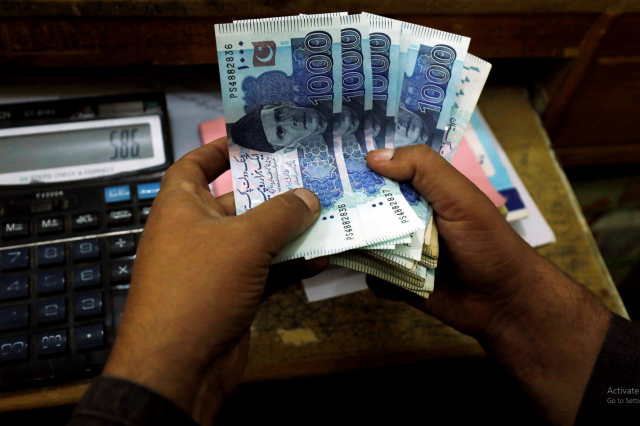Govt borrowing surges to record high of 100.8%
Private sector credit falls to 38.36% posing risk to banks as additional taxes loom

Lending from Pakistan's commercial banks to the cash-strapped government surged to a historic high of 100.83% of total deposits in August 2024. This figure includes the entirety of depositors' funds, along with additional borrowing from the central bank to meet the government's financial needs.
According to data from the State Bank of Pakistan (SBP), commercial banks have lent Rs31.03 trillion to the government against total deposits of Rs30.78 trillion. This spike pushed the investment-to-deposit ratio (IDR) to an all-time high, compared to 84.32% in August 2023. A year ago, commercial banks had lent Rs22.01 trillion to the government against deposits of Rs26.11 trillion.
Total borrowing by commercial banks also reached a record Rs12 trillion from the SBP. These funds are used for various purposes, including meeting the government's substantial financial needs, providing credit to the private sector, and fulfilling the financial requirements of commercial and retail customers.
Banks borrowed money from the central bank at a lower cost and then lent it to the government at a higher rate, earning significant profits from risk-free financing to the state.
Meanwhile, credit extended by banks to the private sector dropped further, with the advance-to-deposit ratio (ADR) falling to 38.36% (Rs11.80 trillion) in August 2024, down from 45.09% a year earlier. This decrease poses a risk to banks, as they could face additional taxation if the ADR does not reach 50% by the end of December 2024. The Federal Board of Revenue (FBR) has warned that banks could face up to 16% additional taxes if they fail to meet this target.
Financial experts attribute the government's heavy reliance on domestic borrowing to a slowdown in foreign financing, particularly as the country faced difficulties in securing a new loan programme from the International Monetary Fund (IMF). However, Pakistan has now met all IMF conditions, and the IMF's executive board is scheduled to give final approval for a $7 billion Extended Fund Facility (EFF) on September 25, 2024.
The government's increased borrowing from domestic banks is partly due to lower-than-expected tax revenues, which has led to a greater need for borrowed funds to cover the fiscal deficit.
Last week, Topline Research reported that commercial banks' borrowing from the SBP through open market operations (OMO) reached an all-time high of Rs12 trillion as of June 2024. OMOs are used by central banks to inject liquidity into the banking sector by purchasing government securities like bonds and treasury bills, ensuring banks have enough funds to meet the government's borrowing needs. Direct borrowing by the government from the central bank is restricted by IMF guidelines.
Topline Research believes that fiscal discipline and foreign inflows will eventually reduce government borrowing and the use of OMOs.
In August 2024, banks' total deposits increased by 18%, reaching Rs30.78 trillion compared to Rs26.11 trillion in August 2023. The growth in deposits primarily stemmed from robust inflows of workers' remittances over the past year, as people deposited excess funds received from relatives (expatriates) living abroad. Remittance inflows have remained strong, averaging around $3 billion per month in the first two months (July-August) of the current fiscal year 2024-25, compared to an average of $2.52 billion per month in the previous fiscal year (FY24).
Additionally, the government keeps its borrowed funds in bank accounts, withdrawing them as needed according to budgetary requirements. This practice further increases the money in the banking system, contributing to the overall deposit base.



















COMMENTS
Comments are moderated and generally will be posted if they are on-topic and not abusive.
For more information, please see our Comments FAQ